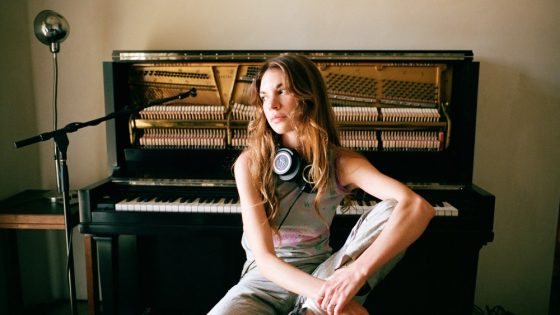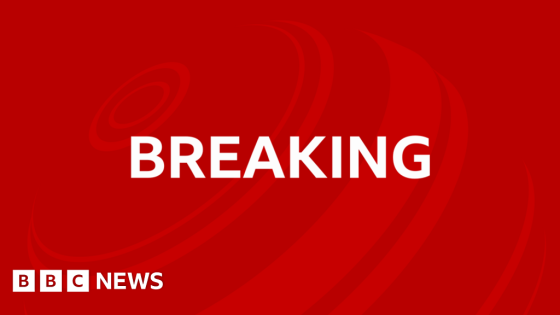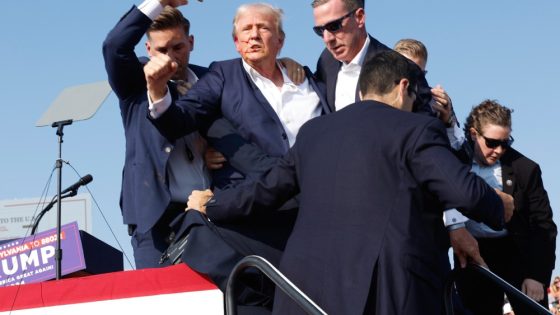When any artist, even a Drake or Taylor Swift, has three major hits in under three months, it’s a big headline. When a songwriter reaches that same milestone, it takes an article like this to make people notice.
In 2024 alone, hit songwriter Amy Allen has seen four of her songs bounding around the top 10 of several Billboard charts: Tate McRae’s “Greedy” (No. 3 on the Hot 100), Sabrina Carpenter’s “Feather” (No. 1 Pop Airplay) and Justin Timberlake’s “Selfish” (No. 9 Pop Airplay), and they’d barely started to fade before Carpenter’s “Espresso” began vaulting up the Hot 100 — it premiered at No. 7 three weeks ago, is currently at No. 4 and is already a candidate for song of the summer. On top of that, last week, she also dropped a solo single, “Girl With a Problem,” a teaser from her forthcoming debut solo album, due later this year.
In the six years since she moved to Los Angeles, Allen, 32, also has had a hand in hits for Harry Styles (“Adore You,” “Matilda”), Halsey (“Without Me,” “Be Kind”), Selena Gomez (“Back to You”), Olivia Rodrigo (“Run for the Hills”), Rosé (“On the Ground”), Shawn Mendes, Camila Cabello, Justin Bieber and many others. Last year, she was nominated for the inaugural songwriter Grammy for her work with Styles, Carpenter, King Princess, Alexander 23, Lizzo and Charli XCX, and she also got an album of the year Grammy for her work on Styles’ “Harry’s House.”
“Amy is a once-in-a-lifetime writer and friend — it all comes to her very naturally and effortlessly,” Sabrina Carpenter, who is a frequent co-star in Allen’s Instagram feed, tells Variety. “She’s super versatile: She can wear any hat and yet it still feels authentic. I’ve learned a lot from her and admire what an incredible collaborator she is.”
Indeed, like any responsible collaborator, Allen diplomatically (and pre-emptively) declines to answer potentially thorny questions about who-wrote-what on those hits, all of which have at least four writers. But listening to her 15 or so solo tracks on Spotify, it’s not hard to hear her sound in the above songs: Her melodies are often sweet while the lyrics are anything but (“You’re a really insecure person” she sings over angelic backing vocals on “RIP”); she’ll stack up lots of syllables followed by a strategic pause before a payoff line; her melodies often have an emphatic “ah” or “hey” instead of a word; many have a lilting jump in a key line; and the melodies and lyrics almost always resolve neatly, even if they leave you hanging for a moment.
They’re also remarkably versatile: Some are ballads based around acoustic guitar, some revolve around a bassline (her first instrument); some seem driven by a melody that was probably sung into a phone (she holds up her iPhone and scrolls through countless voice notes, most without titles). Some sound like pop songs, some could be country songs, the majestic “Unsatisfied” and her latest solo single, “Girl With a Problem,” wouldn’t have been out of place on Boygenius’ album. Like the best songwriters, she understands the value of directness and going with what feels right.
“Sometimes we’ll be writing and someone will say, ‘It should go straight to the chorus here,’ and in my brain I’m like, ‘But we need a pre-chorus!’ — you know, following the ABCs of songwriting. But I’ve really been trying over the last couple of years to deconstruct some of those — that you don’t need to pull out all the tricks all the time. It can actually make the song more interesting.”
Her sound is the product of hours and hours spent in the car with her parents and two older sisters, driving from their home in rural Maine to school and sporting events. “Our school was 45 minutes away in Portland,” she recalls, “and my dad is the biggest classic-rock fan, so since I was little, I spent hours every day listening to music in the car with him and my sisters.”
Allen celebrating her 2024 hit singles at Warner Chappell Music’s officers in Los Angeles earlier this year, with (from left) manager/A&R Gabz Landman, co-chairs Carianne Marshall and Guy Moot, president Ryan Press and other staffers. (Photo courtesy Amy Allen)
It wasn’t long before the singalongs in the car turned into a middle-school band called No U-Turn, formed by Allen’s middle sister Ashley with a couple of friends. “I was eight and such a big fan of the band, I was always watching them practice and work on songs at home,” Allen recalls. “And then one day, she said, ‘We need a bass player.’ I was like ‘I’m ready, let’s go!’ I’d never played an instrument in my life, but my parents saved up and got me a little electric bass and I started learning Tom Petty and Rolling Stones songs. I was in that band until I was 11 or 12.”
She and her sister began writing and performing songs during this time. “My guitar teacher was in a bluegrass band called Jerks of Grass and they let us open for them every Thursday night at this Irish bar in Portland called Graffiti,” she says. “My parents would chaperone us and we’d play the songs we were writing. I did that all the way through high school.” When both of her sisters left for college, she formed a band and began releasing her own music. “I made a little EP and some of the radio stations in Maine played it,” she says. “Then I went to nursing school at Boston College for two years, and within a month of getting there I was like, ‘I made a big mistake — I really want to do music.’”
She convinced her parents to let her transfer to the prestigious Berklee School of Music and was accepted on the strength of auditioning an original song, accompanying herself on guitar. While at the school she formed a band called Amy and the Engine that toured the Northeast, and she credits a challenging songwriting class led by former “American Idol” judge Kara DioGuardi with some useful combat training.
“I think that class was my first window of insight into what it’s like to write competitive pop songs,” she says. “Charlie Puth had been in that class before me, Sam Fischer was in that class — I think we all look back like, ‘We got our asses kicked.’ The rest of my classes at Berklee were very much, ‘Here’s the structure, here’s the form,’ but Kara’s class was, ‘This is your title, go write it and bring it back and we’re all going to listen,’ It was a very healthy competitive atmosphere, knowing we were going to hear each other’s songs, and she was very direct and honest with us about them. Until then, my songs were still very sacred and private, but I think that lit a fire under me.”
After graduating, she moved to New York with her band and met with labels, but had a change of heart about being an artist. “I just knew that I hadn’t gotten to the level that I wanted to be at,” she says. “And being the lead singer and kind of the figurehead of the band was so much time and energy that I felt like I was doing a lot of business work and I didn’t have enough time to put into getting better at writing songs, which is what mattered to me the most. And then I met Scott Harris, who changed my life forever.”
She began working with Harris — who has written hits for Shawn Mendes, Camila Cabello, the Chainsmokers, Justin Bieber and others — moved to L.A., signed with Artist Partner Group, met her current manager/Warner Chappell A&R, Gabz Landman, and launched her career as a professional songwriter by writing hits for Halsey and Selena Gomez, all within a matter of months. She hasn’t stopped since.
Allen credits her years fronting bands with giving her a strong foundation not only as a songwriter and singer, but also in understanding artists. “I do think being in bands and writing for myself and playing all those shows gives me a way to connect with all of the people I work with,” she says. “I get what it feels like to sing to an audience and want to connect with them.”
One disadvantage, however, is the fact that even the most successful songwriters “don’t really have a say in which songs of yours get used,” she says. “A lot of us joke that our most-beautiful, most-prized songs are in this, like, song graveyard somewhere that nobody’s ever going to hear,” she laughs. “And with some others you’re like, ‘I can’t believe that was the one that became a hit.’ But I do feel really grateful that so many of my songs that have come out are ones I feel really connected to and passionate about.”
One way to fix that, of course, is to put out your own album: Allen is as talented and expressive a singer as most of the artists she’s worked with, her honeyed voice making her often-sharp lyrics even more striking: The opening line of “A Woman’s World,” the opening track on her excellent 2021 EP, is “Can you imagine tits on Mount Rushmore?” While that EP, titled “Aww!,” was pop-leaning, her forthcoming debut album is softer and more of a piece — and yes, she’d been saving its songs for herself.
“I’ve been gathering them for the past four years or so,” she says. “I didn’t really think about it as an album until maybe six months ago. Some of them are quite old, and they’re just songs that I couldn’t imagine anyone singing except for me. That’s the deciding factor — they just feel so personal. And,” she acknowledges, “I didn’t want to give them away.”
As for her own process, “It’s different all the time,” she says. “A lot of the stuff that’s going to be on my album I did mostly at home by myself, and then I’d bring it in and hone in with the producer. But when I write with other artists … I think a lot of songwriters have different takes on this, but a lot of songwriters will have a list of like running titles, or have a plan of the day. I am notoriously bad at doing that. Like, if somebody just says a title out of thin air, it feels like I’m trying to do a Sudoku puzzle.
Instead, “I have to really talk to the artist and see what’s going on in their life, and then kind of organically somehow stumble into something. I wish I was a little more prepared to go into sessions, but I think what I love most about songwriting with other people is the one-on-one time of talking and seeing what the artist is going through at that moment, or what they feel like they can vent about for the longest time,” she lifts her hands expansively, “and then pulling the song out of that.”
Source Agencies




